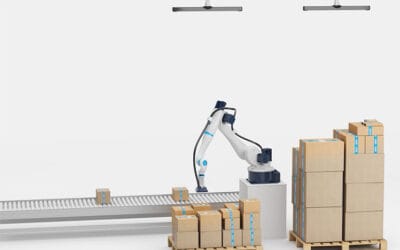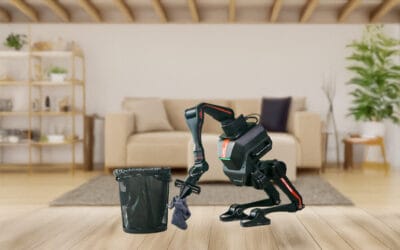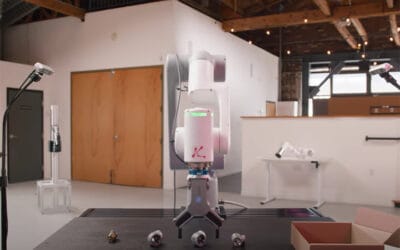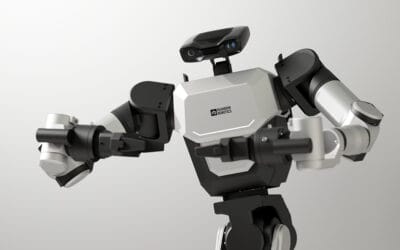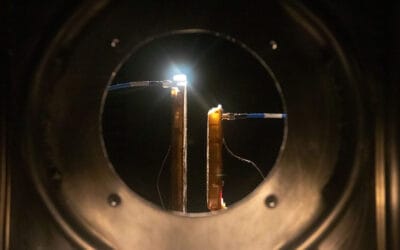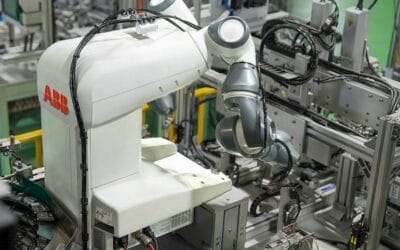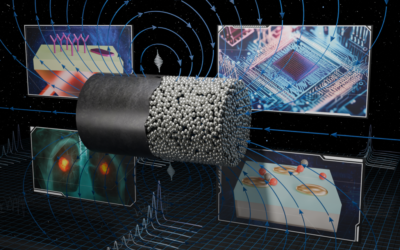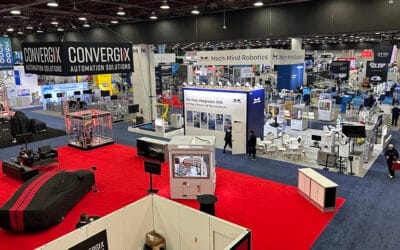Robotics News
The Quantum Apocalypse Is Coming. Be Very Afraid | WIRED
What happens when quantum computers can finally crack encryption and break into the world’s best-kept secrets? It’s called Q-Day—the worst holiday maybe ever.Source: The Quantum Apocalypse Is Coming. Be Very Afraid | WIRED
Simbe upgrades vision platform with AI-powered capabilities
Simbe Robotics Inc. announced advancements to Simbe Vision, the computer vision technology behind its Tally robots. The San Francisco-based company said these enhancements allow its customers to move beyond identifying problems to implementing AI-driven actions that...
Photoneo releases MotionCam-3D Color (Blue) to improve robot perception
Robots typically need multiple sensors to perceive their environments and manipulate items. However, certain materials and lighting conditions can cause problems. Photoneo today announced its MotionCam-3D Color (Blue) sensor, which it claimed takes a new approach to...
Unpacking AI Agents | WIRED
Need to make a dinner reservation or change your flight? Now AI agents can do that for you. This episode of "Uncanny Valley" looks into what Sam Altman calls “the next giant breakthrough.”Source: Unpacking AI Agents | WIRED
TRON1 robot extends its reach with a new optional arm
Mobile manipulation can take many forms. TRON1 is a cute two-legged mobile robot, reminiscent of the AT-ST walker in Star Wars. It is one of the primary offerings of LimX Dynamics. The post TRON1 robot extends its reach with a new optional arm appeared first on The...
Mbodi AI launches on Y Combinator, developing embodied AI for industrial robots
Manufacturers are facing worsening labor shortages, but programming conventional robots to respond to changes in production can take weeks. As a result, billions of dollars in high-mix, low-volume manufacturing remains out of reach for automation, according to Mbodi...
Rainbow Robotics unveils omnidirectional wheels, development kit for its dual-arm robot
Rainbow Robotics, a Korean robotics developer that spun out of the Humanoid Robot Research Center of KAIST, unveiled two new features for its RB-Y1 system at ICRA 2025 this week. RB-Y1 is a semi-humanoid robot that features a torso and two arms with a wheeled base....
Astrobotic, WiBotic test lunar wireless charging system
Astrobotic Technology Inc. this week announced that it has successfully completed flight model acceptance testing of its wireless charging system for the lunar environment. The Pittsburgh-based company said this marks a major advancement in enabling sustained...
ABI Research finds 53% of manufacturers are adopting robots for quality improvement
Just over half of global manufacturers, or 53%, are in the early stages of adopting new industrial robot hardware, according to the latest “Industrial and Manufacturing Survey” by ABI Research. The global technology intelligence firm also found that 28% have already...
ORNL: Researchers Simulate Tens of Thousands of Electrons in Real Time
A research team from the Department of Energy’s Oak Ridge National Laboratory, in collaboration with North Carolina State University, has developed a simulation capable of predicting how tens of thousands of electrons move in materials in real time, or natural time...
HPC Finally Found Its Killer App – Can It Survive? | HPCwire
Where We Are: On June 3, Intersect360 Research released our most recent market numbers for the HPC market. At the top level, things look great. We found a 24.1% growth […]Source: HPC Finally Found Its Killer App – Can It Survive? | HPCwire
10 robotics trends spotted at Automate 2025
DETROIT — At the height of trade show season, Automate 2025 provided opportunities to see the state of commercial and industrial automation. From robot arms and mobile platforms to grippers, sensors, and software, as well as educational and technical workshops, there...


